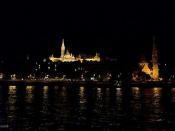Censorship, defined by the Encyclopaedia Britannica as "the changing or the suppression or prohibition of speech or writing", has been present since the dawn of civilization. There are many reasons why people censor entertainment such as literature and music. Many governments or groups try to preserve their standards of morality by preventing people from learning about or following other standards, commonly found in the two previously mentioned mediums. There are different ways to censor things. It can be on a local level, such as libraries refusing to carry a controversial book. It can also be on an entirely larger scale. In the 1770's, French author Beaumarchais had two of his plays, The Barber of Seville and The Marriage of Figaro, banned by King Louis XVI. Back then, these plays were considered outrageous and sometimes blasphemous. To fully understand how our system of censorship works today, we have to look into history to see how censorship got started.
Johann Gutenberg invented the moveable type printing press and published his first bible sometime around 1450. By 1500, an estimated 20 million books were circulating throughout Europe. The Church's monopoly over the written word was destroyed. Responding to this new technology of freedom, the Church developed a number of control mechanisms. The most obvious, and perhaps famous of these was the Index librorum prohibitum (Index of Prohibited Books). The Index listed hundreds of banned authors and books.3 Less famous than the Index but absolutely central to the rise of censorship, was Church and government use of exclusive printing privileges, which granted favored printers a monopoly right to publish books so long as they were approved by official censors4. In Italy, censorship was primarily a response to the spread of printed Protestant propaganda.5
On October 31, 1517, the Day of all Saints,


